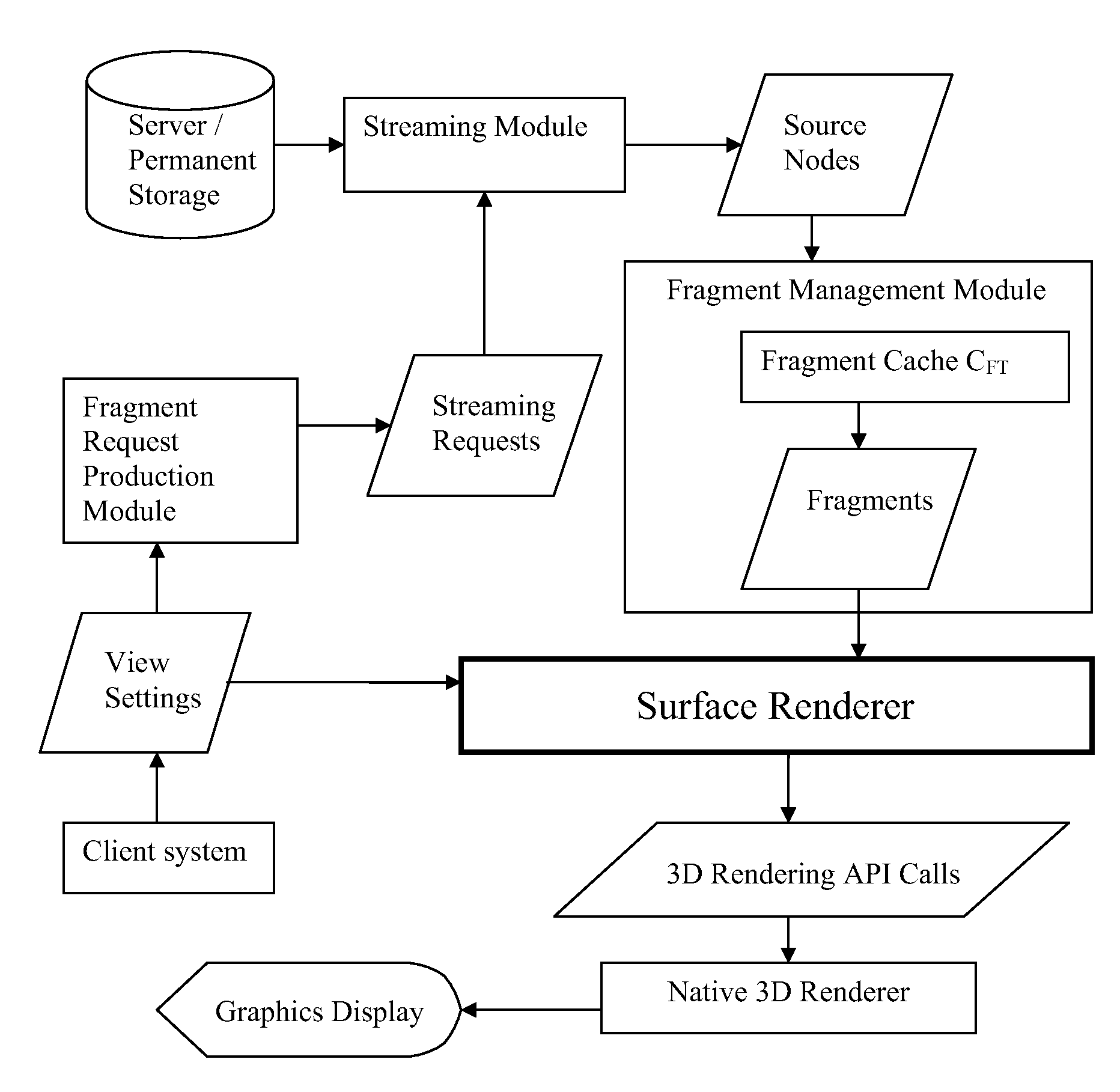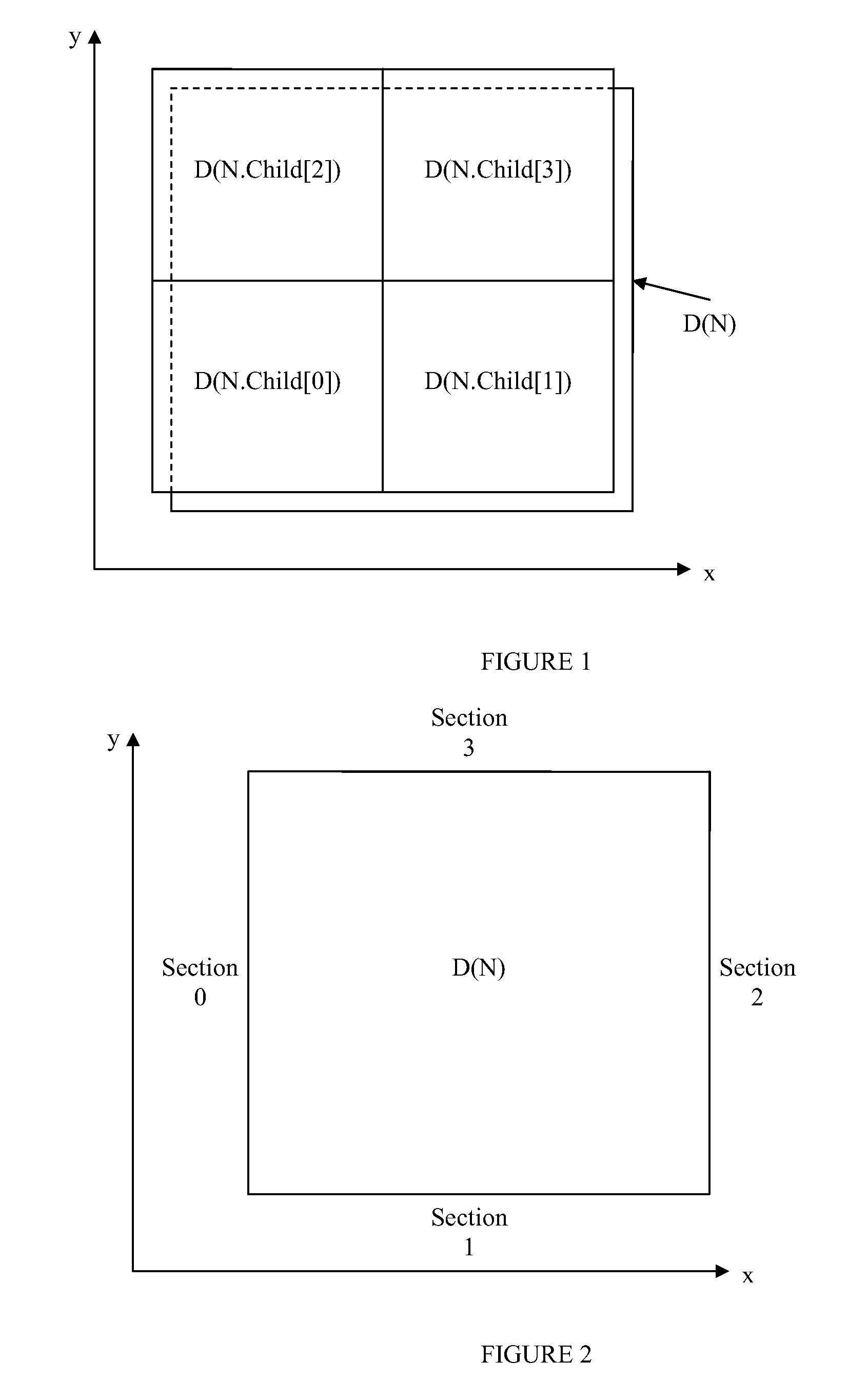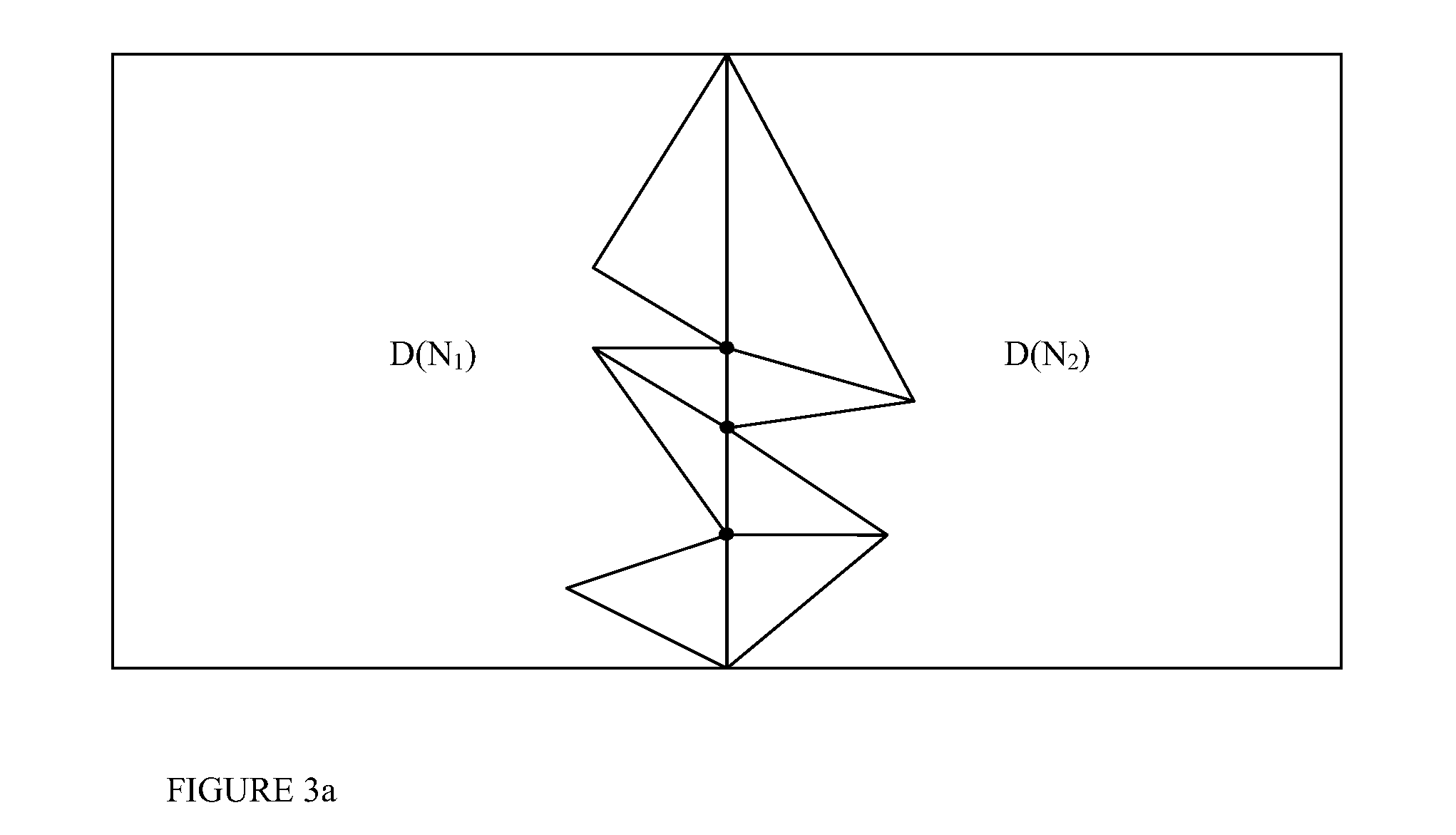Adaptive quadtree-based scalable surface rendering
a quad-core, scalable technology, applied in the field of computer graphics, can solve the problems of very restrictive memory requirements, and achieve the effects of high efficiency with graphics hardware, excellent visible quality, and exceptional
- Summary
- Abstract
- Description
- Claims
- Application Information
AI Technical Summary
Benefits of technology
Problems solved by technology
Method used
Image
Examples
Embodiment Construction
[0028]The present invention renders surfaces one at a time and there is not much interdependency between them, so hereafter the description will focus mostly on the rendering of a single surface. As shown in FIG. 9a, the complexity of the dataset appears to be in the mapping of Gs of the surface, however, the method does not use the mappings Gs directly. Instead it uses a surface preprocessor and quad-tree structure to create a database from the input surface geometry. This can be stored for later use in any nonvolatile storage.
[0029]FIG. 9b depicts the run time component of the system where the real time rendering occurs. This is divided into a server side, and a client side. The server side of the system is only required to provide random access output from the database created in the preprocessing step of FIG. 9a. The client side of the run time system of FIG. 9b takes view settings as input. These settings may come from any known input source including a user, a program, hardwar...
PUM
 Login to View More
Login to View More Abstract
Description
Claims
Application Information
 Login to View More
Login to View More - R&D
- Intellectual Property
- Life Sciences
- Materials
- Tech Scout
- Unparalleled Data Quality
- Higher Quality Content
- 60% Fewer Hallucinations
Browse by: Latest US Patents, China's latest patents, Technical Efficacy Thesaurus, Application Domain, Technology Topic, Popular Technical Reports.
© 2025 PatSnap. All rights reserved.Legal|Privacy policy|Modern Slavery Act Transparency Statement|Sitemap|About US| Contact US: help@patsnap.com



